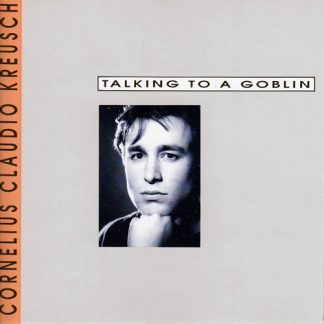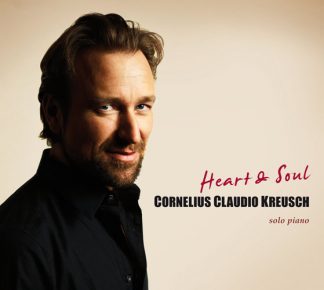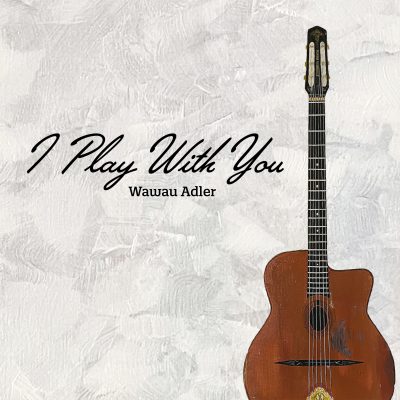Description
Wawau Adler – guitar
Alexandre Cavaliere – violin
Denis Chang – guitar
Hono Winterstein – guitar
Joel Locher – bass
He is, of course, addressing his esteemed fans and listeners when the great gypsy swing guitarist Wawau Adler calls his new album “I Play With You.” But he could also be referring specifically to his instrument. He changes playfully between the Selmer No. 828, a classical guitar from the forties, over modern types to the electric guitar. Finally, the title could also refer to the repertoire that is played here: After Adler has interpreted in his earlier recordings mainly standards – his last album “Happy Birthday Django 110”, released two years ago, was, for example, explicitly dedicated to his and the great role model of all gypsy jazz guitarists Django Reinhardt – and interspersed in each case only a few original compositions, it is now for the first time exactly the opposite.
With his own songs you can now get to know the whole Wawau Adler on “I Play With You”. The one who never denies his Manouche roots, but who has derived his own style from them and has always applied it to all jazz like few of his generation. Biréli Lagrène was the first formative influence for Josef “Wawau” Adler, born in Karlsruhe in 1967, when he was twelve years old. The guitarist who is considered by many to be Django Reinhardt’s most legitimate successor precisely because he never simply copied the forefather of hot jazz and gypsy swing, but developed him further in his own way and transferred him to modern jazz styles. And Adler did and does the same.
Already on Adler’s first album “With Body And Soul” from 1991 you can hear how he turned to bebop and fusion. Although he went “Back to the Roots” (as two of his CDs from that time are called) in the two-thousand years, he always kept his openness. Which can now be enjoyed on “I Play With You” in a range as seldom before, and that mainly with his own pieces. But on his “Martinique”, for example, Wawau Adler casually saunters into the Caribbean with idiosyncratic harmonies and dreamy runs. And on “Jazzy Poplair,” as the title promises, he gets involved with the mainstream, at times making the electric guitar sound almost like George Benson. The title track sounds excitingly like a mix of romantic classical and Great American Songbook. “Samoir Sur Seine,” finally, is an enchanting excursion into melancholy chanson.
But Adler also treats his fans to a few standards. With “Manoir De Mes Reves” there is the obligatory bow to the master Django Reinhardt in classical style. With “Cherokee” you can hear Adler’s bebop passion. On Cole Porter’s “What Is This Thing Called Love”, contrary to expectations, the focus is not on the ballad, but on his virtuosity. And finally, on the Hart/Rodgers classic “Chicago” the blues part is superb.
Whether his own works or adaptations, Adler once again trusts companions with international format on “I Play With You”. The basis is formed by longtime companions and friends: On the rhythm guitar sits, as so often, the Frenchman Hono Winterstein, one of the best in his field. In the late seventies Winterstein started in the Gino Reinhardt Trio, later he played among others Samson and Tchaolo Schmitt, Patrick Saussois and since 2001 often with Biréli Lagrène. Even chanson star Patricia Kaas already resorted to his services.
German-Swiss bassist Joel Locher has been loyal to Adler for just as many years. Today he may be counted among the rare low-frequency specialists in Gypsy Swing, although he comes from classical jazz and is extremely versatile. Thus, after a classical education, he started as a solo double bass player in the Stuttgart Youth Chamber Orchestra. Then he turned to jazz in all its breadth, from the trio of the young modern jazz pianist Olivia Trummer to hard funk with Pee Wee Ellis and Peter Fessler.
On “Happy Birthday Django 110” for the first time on board and on “I Play with You” now in a leading role is Alexandre Cavaliere, a “protégé of the late Didier Lockwood and Belgian wonder violinist,” as Adler admiringly tells. Which has already led him to world stars like Toots Thielemans, Richard Galliano or Richard Bona, but above all to some of the most important Reinhardt heirs. Here he is now even allowed to open the solo round, and he harmonizes with Adler as perfectly as Stephane Grapelli once did with Django Reinhardt.
Finally, Adler invited his Taiwanese-Canadian friend, guitarist Denis Chang, who was fortunately in Europe at the time of the recordings. The young Gypsy aficionado – one of the few non-Sinti or Roma who has learned and internalized their music and language – was already allowed to perform alongside Les Paul in New York in 2008 because of his technical qualities. Since 2012, he has focused entirely on gypsy jazz, and he has also made several instructional videos with Wawau Adler. “Denis is a good friend,” says Adler, “a highly respected musician in the gypsy music community. He has an incredible ear and an almost uncanny ability to learn music: It took him just one afternoon on ‘I Play With You’ to learn my entire repertoire.“
Old and new friends – they all help significantly that on “I Play With You” you can discover the whole Wawau Adler. The guitarist who connects the tradition of Manouche Swing with the music of the present with his own signature. Who plays Gypsy Jazz for the 21st century.






Reviews
There are no reviews yet.